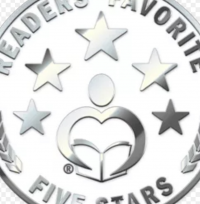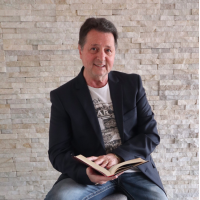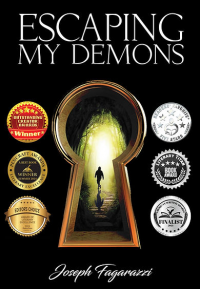Can you tell us a bit about yourself and what inspired you to become a writer?
11 years ago I started writing a five-page letter to myself, it was to be a self–healing process.
It helped “me” find a way to stop struggling with my inner emotional scars and a depressive state of mind.
Can you discuss the role of resilience in your journey, considering the hardships you faced growing up?
Experiencing knockbacks from my family throughout my life, learning to start believing in myself was the hardest thing to do. I eventually started to realize that I was not the no-hoper my parents thought I was or would be and fought back my Demons, managed to survive, and succeeded in becoming a successful retired businessman.
I like to consider my book as a survival life-changing kit, it is written by someone who has experienced hardship and eventually managed to move forward.
Were there specific challenges you faced while putting your story into words, and how did you overcome them?
I stopped blaming the obstacles that were blocking my path to happiness. The fundamental flow I had in my darkest days was to seemingly find excuses and blame something or someone for my misery but I then realized that the latter will always be there.
What motivated you to share your deeply personal story with others through your first book, "Escaping My Demons"?
I realized that by writing my memoir I can help and inspire other victims of child abuse as I was and hopefully also teach biased parents to learn from my parent's mistakes by showing love and support not only to their wanted child but also to the unwanted that was born by mistake.
Can you elaborate on the process of turning your painful experiences into a narrative?
I learned not to expect others to change their characteristics because the issues I carried were from within and I allowed my Demons to follow my every move.
It followed me in my darkest moments and by not knowing what to do I carried it throughout my years. At that time it didn’t register that only “me” and “me” alone could resolve these issues with only a vision of clarity.
I then decided to follow a different path in my life and not like a storm of bees going in one direction.
If the initial direction you take is obstructed, find a new alternative, and to be happy you must move on.
How did you find the courage to revisit and recount the traumatic events from your childhood?
I had to theoretically change my ideologies and how I viewed things, I now treat my life as a blueprint, it defines the life I want!
The blueprint summarises the successes and failures we have and how we will react to them.
In what ways did writing your book, "Escaping My Demons" contribute to your healing process?
Writing my book Escaping My Demons gave me inner peace!
I realized that living with hate is not inspirational and if we understood that our time on this earth is ticking away, we would not be worrying about our past but instead, we should be looking ahead to what makes us happy. To do that you need to find a happy medium within your inner self. Be proactive, follow your dream and above all…be who you wish to be and not what others expect you to be.
Throughout the book, there's a theme of seeking love and validation from your parents. How has this impacted your relationships and sense of self-worth as an adult?
As years went by I succumbed to accepting that because of my parent's mistake of having me my place in our family was always placed as a third wheel. The mistake of their youth for having me provided me with the clarity and validity of never having been accepted.
Did you discover any surprising aspects of yourself or your experiences while reflecting on your past during the writing process?
“Yes”! I discovered that the hardship bestowed on me made me stronger and more determined than ever to succeed and I proved it not only to myself but to those who doubted my capability.
The title, "Escaping My Demons" suggests suffering and mistakes. How did you come up with the title, and what does it symbolize for you?
It symbolizes my sufferings and the burden I carried on my shoulders all my life. It's a symbol of freedom to no longer be walking in someone's shadow. Spreading my wings and learning to fly and reach for the sky showed me I was capable of coping with anything that was thrown at me.
Were there moments during the writing when you questioned whether to include certain details? How did you navigate those decisions?
There were! At the time it was suggested it was best to remove 3000 words for the sake of empathy for the rest of the family members (my sister and my mother.
Your father plays a significant role in your story. Have you had any contact or communication with him since sharing your experiences through the book?
In my book, it was explained that my father passed away the following year after my mother died. The book was published 2 years later.
How do you hope your story will impact readers who may have faced similar challenges or traumas?
I hope it will benefit all age groups, everyone and anyone who is and has experienced childhood trauma as well as teach the biased parents that purposely destroyed their child's mental ability to grow and prosper.
Childhood trauma can be inherited by the loss of love by your family and replaced instead by being neglected and sexually physically and mentally abused.
Now that the book is complete, how do you envision your future, and what do you do for yourself? Aspirations
My future is now the present and at the age of 72 it has become a fulfilling part of my life.
I've succeeded at achieving everything I aspired to do, I am now retired and enjoying the fruits of my labour






















